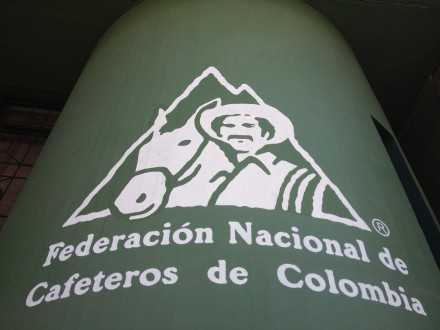BOGOTA, Colombia – Under the frame of the World Day Against Child Labor (June 12), Colombia’s Ministry of Labor and the Colombian Coffee Growers Federation (FNC) agreed to work together to prevent and eradicate child labor and exploitation in the coffee industry.
Through a memorandum of understanding signed between the entities in late 2015, Clara López -Minister of Labor- and Roberto Vélez -CEO of the FNC- pledged to jointly prevent child labor in accordance to the legal framework and the principle of shared responsibility and to promote respect for the rights of all boys, girls and teenagers involved in coffee sector.
Among the initiatives that the Ministry and the FNC agreed to carry out are the design and implementation of joint awareness and education campaigns regarding child labor, the design and implementation of joint prevention and eradication campaigns regarding sexual exploitation, and information sharing between the Ministry and the FNC in order to facilitate meeting the goals set out in the memorandum.
As the representative of Colombia’s more than 500 thousand coffee growing families, the FNC condemns all forms of child abuse, exploitation or labor that compromise the emotional development, health, or education of children.
This is why, for over 89 years, the federation has developed investment programs that stimulate children’s access to education, knowledge transfer from generation to generation, and social equity.
With this in mind, it’s important to highlight that in the rural family context where Colombian coffee growing takes place, coffee, in itself, is not an activity that generates child labor.
Furthermore, not all involvement of children and youth in coffee production should be defined as exploitation or should be abolished.
According to the International Labor Organization (ILO), “children’s or adolescents’ participation in work that does not affect their health and personal development or interfere with their schooling is generally regarded as being something positive.” (ILO, 2004:p16).
In the Colombian context, it is the very essence of the knowledge transfer that takes place from generation to generation of coffee growing families.
During the meeting with the Ministry of Labor, the FNC encouraged the Colombian government to implement a regulation that condemns child labor in the coffee sector while allowing children to be part of the family traditions and processes inherent to Colombian coffee growing.
These practices are precisely what have made Colombian coffee be a world recognized product and an engine for development. Not only does the coffee sector account for 23% of the country’s agricultural GDP, but nearly 2.2 million Colombians derive their income directly or indirectly from coffee production.
In addition to the Ministry of Labor and the CEO of the FNC, the President of Telefónica Colombia -Alfonso Gómez- and the Director of Fundación Aviatur -Sandra Aguilera- also attended the event.
Mr. Gómez and Mrs. Aguilera are part of the Colombian Alliance Against Child Labor (Red Colombia contra el Trabajo Infantil): a public private partnership between the Ministry of Labor, the Global Compact Colombia, thirty-two companies and ten allies


















